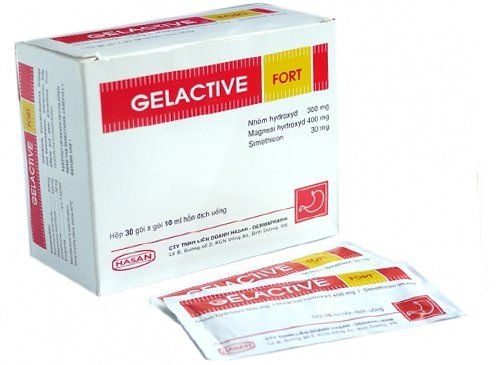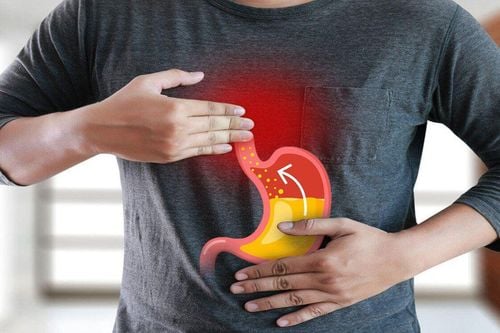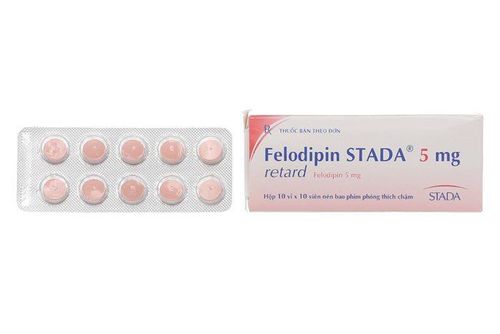This is an automatically translated article.
Although the symptoms of chest pain are similar, heart attack and heartburn are two different conditions. Through this article, let's learn about the causes, symptoms, and how to tell the difference between the two.
1. Causes of Heart Attacks and Heartburn
To better understand how heart attack and heartburn cause chest pain, let's explore the causes behind these 2 conditions:
Heart attack (also known as myocardial infarction) occurs when arteries The main or arteries in the heart are not getting the blood flow they need. As a result, regions of the heart do not receive enough oxygen and nutrients, leading to an ischemic state. To make it easier to understand, you can associate ischemia with a situation where standing still has to suddenly switch to full sprint, causing the heart to beat rapidly and causing a feeling of chest pain. Heartburn (heartburn) occurs when stomach acid flows up into the esophagus (even into the mouth). Acid in the stomach has the main function of dissolving food and nutrients. The lining of your stomach is strong enough not to be affected by acid, but the lining of your esophagus is not. So when acid rises, it can bring a burning sensation, causing chest pain and discomfort for the patient.
2. Symptoms of Heart Attack and Heartburn
While heart attack and heartburn both produce chest pain, the areas in and around the chest that are affected by pain and sensation are also different:
The chest pain of heartburn often includes a feeling a burning sensation that begins in the upper part of the stomach and spreads to the chest; A heart attack usually includes discomfort in the center or left side of the chest. Sometimes described by patients as a feeling of pressure, tightness, or fullness in the abdomen. Both heart attack and heartburn are often accompanied by other signs, for example:
Heartburn:
Pain often occurs after eating; Can feel the sour taste; Burning sensation in the throat. Heart attack
The pain comes suddenly; Feeling short of breath; Pain or discomfort in the neck, jaw, or back; Discomfort in one or both shoulders; Feeling weak or fainting. The thing to keep in mind is that if you experience chest discomfort and aren't sure if it's heartburn or heartburn, it's better to exercise caution and see your doctor as soon as possible.
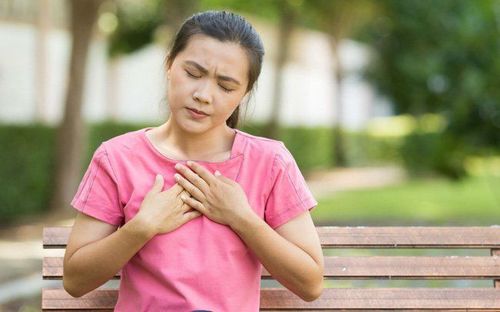
Đau tim thường có những dấu hiệu khác biệt hơn so với ợ chua
3. Signs of a heart attack in women
Many people wonder: “Are heart attack symptoms in women different from men?”. According to the University of Utah, although heart attack symptoms are essentially the same in both sexes, in some cases, women are likely to experience different symptoms than men. This is why many women do not recognize the symptoms of a heart attack and experience more serious complications.
According to a survey by the Centers for Disease Control and Prevention (CDC), every year in the United States, the rate of women dying from heart disease (including heart attacks) is as high as that of men.
4. Test to see if you have a heart attack or heartburn
Here are some reference questions for you to assess for yourself (or someone else) experiencing a heart attack or heartburn:
1. What makes your symptoms better? When you have heartburn, sitting up and taking an antacid will often help relieve the pain. Lying flat and leaning forward makes the condition worse.
If you have a heart attack, antacids and sitting up will not improve the situation. Even more active makes it worse.
2. When was the last time you ate? With heartburn, the person is usually susceptible to a reaction within a few hours of eating. If you haven't eaten in a while, it's less likely that your symptoms are related to reflux. When having a heart attack, the symptoms that occur have nothing to do with eating.
3. Has the pain spread? With heartburn, the pain can reach the throat. During a heart attack, the pain can travel up to the jaw, back, or down one or both arms.
4. Do you get short of breath or sweat easily? With heartburn, the symptoms are usually not this severe. But with a heart attack, symptoms of shortness of breath and sweating can signal ischemia and need to go to the emergency room.
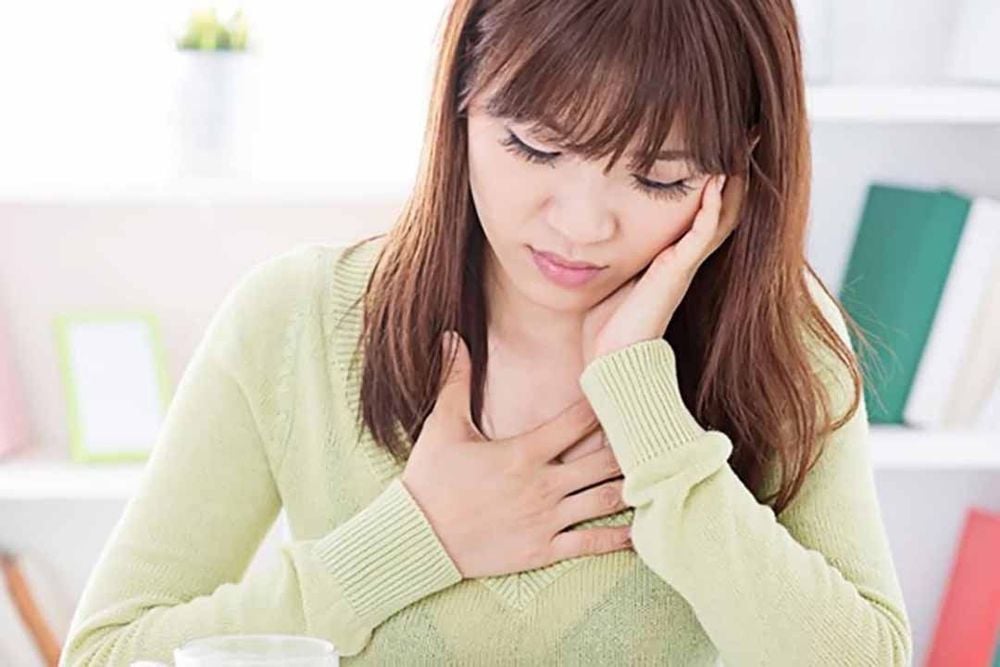
Bạn có thể tự kiểm tra cơ thể với tình trạng đau tim và ợ chua qua bài test
5. Find out other causes of chest pain
Heart attack and heartburn aren't the only causes of chest pain, but they are two of the most likely. Other potential symptoms may include:
Anxiety . In some cases, severe anxiety can cause panic attacks that make you feel like your heart is racing. Other symptoms include difficulty breathing and intense panic; Esophageal muscle spasm. Some people have spasms or spasms of the esophagus. If this happens, they may experience chest pain or discomfort; Gallbladder pain. The gallbladder is responsible for releasing bile that the body uses to digest fats. Sometimes it can become blocked or problematic (such as gallstones), causing symptoms such as pain in the shoulders, arms, and neck as well as nausea and vomiting. Pneumonia . This condition occurs when the tissues in the chest wall become inflamed, usually from a violent cough or inflammation caused by an infection.
6. What to do if you have chest pain?
If you are experiencing chest pain and suspect it is a heart attack, do not attempt to go to the emergency room yourself. Instead, contact (or have someone call) emergency medical care as quickly as possible.
The longer the period of time without adequate blood supply to the heart, the greater the risk of myocardial damage. Here's why don't wait or hesitate if you suspect you're having a heart attack.
While the main symptom of both heart attack and heartburn is chest pain, there are other symptoms that can help differentiate between the two conditions. However, it is better to cautiously seek the help of a doctor than to self-diagnose at home. If you've ever had chest pain - especially if the pain comes on suddenly and is accompanied by shoulder pain or nausea - call 911 immediately.
Vinmec International General Hospital is one of the hospitals that not only ensures professional quality with a team of leading medical professionals, modern equipment and technology, but also stands out for its examination and consultation services. comprehensive and professional medical consultation and treatment; civilized, polite, safe and sterile medical examination and treatment space.
Please dial HOTLINE for more information or register for an appointment HERE. Download MyVinmec app to make appointments faster and to manage your bookings easily.





